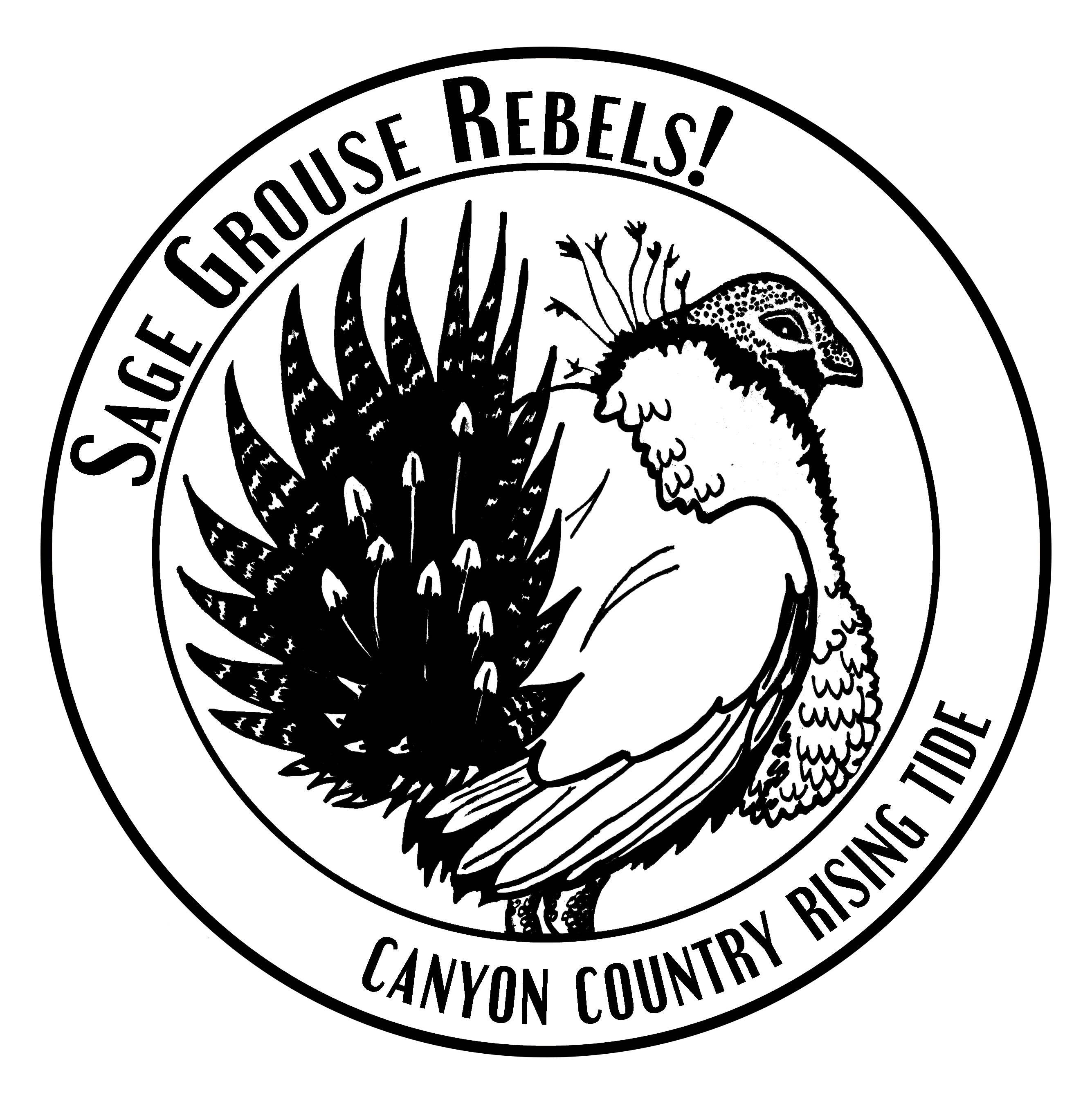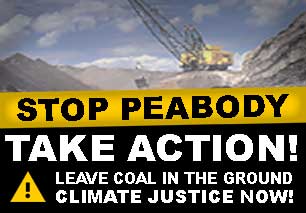Wild Roots Feral Futures takes place on occupied/stolen indigenous territory, primarily of the Nuutsiu (occasionally spelled Nuciu or Nuchu, aka “Ute”) people, as well as Diné (“Navajo”), Apache, and others.
In recognition of this reality and as a first action in confronting it, we seek to establish proactive working relationships with those whose stolen land we gather upon, and open the space we temporarily gather in to the centering and amplification of indigenous voices and struggles.
Our understanding is that any community of resistance that doesn’t center the voices of indigenous people and put their leadership in the forefront is a movement that is part of the problem.
HOWEVER, *how* to return such space and amplify such voices without engaging in tokenizing behavior remains problematic, as does (neo)colonial dynamics of further extracting yet more use value from indigenous communities by expecting and requesting their participation in such processes.
We recognize that protocol varies from community to community and Nation to Nation, and we feel that a good initial act on our part is to simply reach out and establish contact, as we are doing now.
Please feel free to call us out, send us feedback, reach out to us, offer your participation, etc., at feralfutures [at] riseup [dot] net
We will also be putting together a recommended reading & resource list (coming soon!), but until then, please check out the many amazing decolonization resources at Unsettling America. In particular, please check out these guidelines, many of which WRFF may be adopting as a matter of event policy, as well as these critical texts on cultural appropriation. We also recommend the texts Heteropatriarchy & the Three Pillars of White Supremacy by Andrea Smith, and White Privilege: Unpacking the Invisible Knapsack, by Peggy McIntosh, and request that aspiring event participants familiarize themselves with them.
The simple truth is: we cannot avoid facing our uneasy and unsettled relationships to the Indigenous peoples and Indigenous lands that we occupy. If we do not relinquish our settler privilege and grow healthier relationships with Indigenous peoples, life, and lands on their terms, then we will only be skimming across the surface of decolonizing movements, creating the appearance of transformative change, but actually cementing our occupation and theft of Indigenous lands and cultures even more firmly into the continent’s already bloodied ground.
Turtle Island is beautiful but bloodied land, under siege since 1492 and still in active resistance to euro-centric colonization and settlement. She continues to yield the bounty of riches we live on today, derived from the continued thieving and pillaging of Indigenous life forms. And she is ever the storyteller of the genocide begun by our ancestors.
While settlers claim to love this beautiful land – without the vital presence and consent of its Indigenous human peoples, such love is racist and self-serving. If one is going to truly love the land, then that love will embody Indigenous peoples thriving on that land as an integral and inseparable aspect of the cultural and ecological landscape.
But too often, our so-called love is the possessive adoration of “wilderness” and natural places violently emptied of Indigenous peoples through ethnic cleansing. We embrace the racist fabrication of “pristine” nature – the erasure of the natural Indigenous human being from the land we claim to love. We’re content with this human aspect of the land being invisible, relegated to the nostalgic past, being oppressed, being destroyed. Our love reveals itself as selfish and insecure.
Because of this insecurity, it is very difficult for us to accept Native peoples as presently alive and inseparable from the land itself, let alone surrender our entitled claims of presence and authority that would further their natural reintegration into their home places and relationships of freedom.
In making Indigenous human people invisible, we reveal our fear of displacement, denial of shame, and the ignorance of our own stories from a time when we were peoples integral to places. For our grotesque convenience, we disavow our continuing role in ongoing genocidal warfare.
Only through the most dissociative forms of forgetting, can we innocently turn to the beautiful land for solace, pleasure, and connection without feeling some sense of unease. Otherwise, we would feel compelled to take conscious action to reconcile these feelings. But conscious actions upset our bliss. This makes us deeply invested to only see the land we want to see. We do not see what is really there.
The land has many more stories to tell than just the beautiful ones that indulge our innocent pleasure. If we only look around and listen with an open heart, we will see past our short-term love affair with a continent that doesn’t belong to us, and consider all of the stories that may live in the mountains, waters, and wind.
—Renewal, Remembrance, and Resistance for Decolonizing People of European Heritage














“So what does it mean to “decolonize” the primitive skills movement? Now I am speaking, theoretically, to primitive skills communities. Here are some specific suggestions which I will follow up with explanations: understand your colonizer status and take a stance, retrace your own Indigenous roots, understand and work to undo white supremacist and patriarchal conditioning, establish respectful communications with Native tribes, and embrace Indigenous values while maintaining a critical eye for cultural appropriation.”
…
“The primitive skills community would do well, as we all would, to question our settler desires and actively work toward decolonization. This does not mean abandoning the desire to embrace Indigenous values and ways of being, in fact it can be harmonious with this desire, as long as we reframe our connection to this land with the understanding that it is stolen, to shift in order to become true allies to the existing Native peoples who continue to be oppressed and fight for their own liberation.”
Essay: Decolonizing the “Primitive Skills” Movement
LikeLike
Towards an Understanding of Cultural Appropriation in Rewilding
“Rewilding is so important to me, and to our future, that I want to do whatever I can to create deeper connections between Native people and Non-Native people as we rewild. I’ve traversed this road for a while now and learned some things that can help us all work together more effectively. This is an open letter about cultural appropriation, how to avoid it, educate yourself on it, and learn from other cultures in a sincere and respectful way that will create collaborative partnerships. This isn’t a definitive guide. This is an intro to a never-ending conversation about this topic that we need to be having regularly.”
Read more…
LikeLike
Pingback: Wild Roots Camp Explores Off-Grid Alternatives - UNICORN RIOT
Pingback: Announcing Wild Roots Feral Futures 2016! | Wild Roots Feral Futures
Pingback: Wild Roots Feral Futures 2016 | Southwest Earth First!
We’re seeking folks to organize an indigenous outreach working group for Wild Roots Feral Futures. Let us know if you’re interested! Check out this highly relevant sneak peek at an amazing resource due out later this year called “Ask First! ~ A Better Practices Guide for Indigenous Engagement”:
Whether we acknowledge it or not, we are always in relationship with Indigenous peoples by living in and producing events on their ancestral homelands. Regardless if tribes have recognition status, or if particular sites fall under tribal jurisdiction or band council, the entirety of North America (Turtle Island) is made up of distinct and overlapping Indigenous territories. There are hundreds of tribes working to reaffirm their sovereignty and protect their cultural practices, traditional lands, waters, and natural resources. Each decision we make, each action we take, affects Indigenous peoples. Whether you’re an event producer, organizer, participant or attendee, here’s just a few questions to Ask First! for building stronger movements & community at events:
• Which Indigenous Nations or communities’ territory is an event held on?
• Is there ::local:: Indigenous representation and at least good efforts made to reach out to reps elected by Indigenous communities of that region?
• Did an organization ask Indigenous peoples with whom they should consult?
• What is the history and geography of a place, especially from Indigenous perspectives?
• Are there local Indigenous liberation struggles for community, land, or water in the local or neighboring territories? Are there land, water, and/or sacred sites near an event site that Indigenous People are protecting or defending? How might an event intersect with these? How can organizations and attendees alike protect the integrity of these places during their events?
• What protocols may event staff and attendees need to know?
• What constitutes a meaningful acknowledgement & consultaiton of the local Indigenous Peoples and territory? Are local Indigenous communities invited to participate in and being consulted with about an event beyond an opening blessing or skillshare?
• What happens if there is art, a performance piece, wardrobe choices or sampling of music that is negatively impacting Indigenous Peoples? To the event organizer or attendee: Are you willing and prepared to deal with cultural appropriation and the harm it causes?
• How do we develop practices that are more cross-culturally inclusive for a wide diversity of groups?
LikeLike
Hi, I’m the artist who drew the “Decolonize Your Mind” image that you used in your article. I know this article is old, but I would greatly appreciate it if you would please credit me for my work OR remove my art from your piece, as I did not consent to its use. My website is lunaenriquez.com, you can find the original piece there.
LikeLike